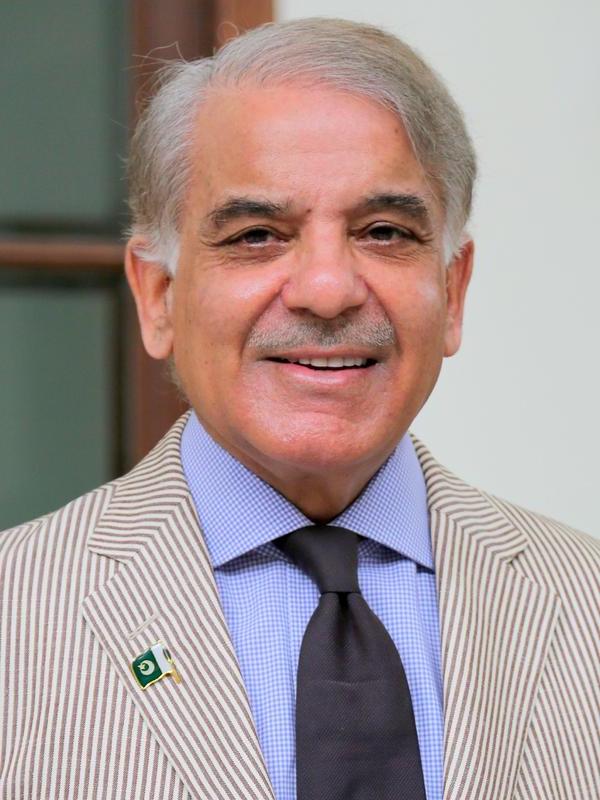In a story that has captured the nation’s attention, promising Pakistani footballer Muhammad Riaz is now at the center of a growing debate on the fate of departmental sports in Pakistan. Once a shining talent for the national football team and a proud representative at the 2018 Asian Games, Riaz’s life took an unexpected turn after the disbandment of his team at K-Electric. Today, a video of him selling jalebis on a street corner in his hometown of Hangu has become a symbol of the systemic neglect faced by many elite athletes in the country. Recent developments suggest that his plight has reached the highest levels of government, with sources at the Pakistan Sports Board confirming that Riaz has been invited to the Prime Minister House, where he may have the opportunity to meet Prime Minister Shehbaz Sharif.
A Promising Career Interrupted
Muhammad Riaz, aged 29, once stood as a beacon of hope for Pakistan’s football community. His impressive performances on the field earned him a place in the national team, and his participation at the 2018 Asian Games was a proud moment for both him and his supporters. However, behind the scenes, a controversial policy decision by the former Pakistan Tehreek-e-Insaf (PTI) government was unfolding—a decision that would have long-lasting repercussions on the careers of countless athletes.
The PTI government imposed a sweeping ban on departmental sports, a move that led to the dissolution of teams like the one Riaz played for at K-Electric. For many, departmental sports had long been the backbone of Pakistan’s athletic talent pool, offering financial stability and a platform for sporting excellence. With these teams suddenly disbanded, athletes who had dedicated their lives to their sport found themselves without employment, support, or a clear future.
The Heartbreaking Turn: From Football Star to Jalebi Seller
The impact of this policy shift soon became evident when a video emerged online, showing Muhammad Riaz selling jalebis—a popular traditional sweet—in a humble street corner setting. The imagery of a national sports star, who once captivated audiences with his skill and dedication, now forced to resort to selling sweets to support his family, struck a deep chord with the public. Social media erupted with sympathy and outrage, as viewers across Pakistan and beyond questioned the policies that had led to his current predicament.
Riaz’s story is not just about one man’s misfortune; it is emblematic of a broader crisis within Pakistan’s sports industry. The loss of stable employment for talented athletes has sparked a heated debate over the role of government in sustaining and nurturing sports. Many argue that the controversial ban on departmental sports was premature and has done irreparable damage to the country’s sporting infrastructure. For Riaz, the ban meant watching his dream of a successful football career slip away, replaced by the harsh reality of financial insecurity.

Government Promises and the Road to Recovery
Amid growing public outcry, there have been whispers of hope. Prime Minister Shehbaz Sharif, whose administration has repeatedly expressed a desire to revive departmental sports, has taken notice of the unfolding crisis. Sources within the Pakistan Sports Board have confirmed that Muhammad Riaz has received an invitation to the Prime Minister House—a move seen as an acknowledgment of the struggles faced by athletes like him. While it remains uncertain whether Riaz will secure a meeting with the Prime Minister, the gesture itself carries significant symbolic weight.
This invitation is more than just a courtesy; it represents a potential turning point in how the government addresses the fallout of past policy decisions. Riaz’s invitation to the PM House could signal a renewed commitment to restoring the dignity and livelihoods of the nation’s sports stars. For years, athletes have awaited a revival of departmental sports, a promise that has been repeatedly mentioned but never fully realized. If the Prime Minister follows through with concrete steps to reinstate support for these athletes, it could herald a new era in Pakistan’s sports administration—one that values talent and provides the necessary resources to help it flourish.
A Cry for Justice and Recognition
In a recent statement, Riaz expressed his deep sense of frustration and disappointment over the broken promises. His words resonate with many athletes who have seen their careers stalled by bureaucratic decisions and policy missteps. Riaz’s current situation is not an isolated incident but a stark reminder of the human cost of decisions made at the highest levels of government. The disbandment of departmental teams has left a void that affects not only the sports industry but also the social fabric of communities that have long rallied around these institutions. Athletes who once brought pride to their regions are now forced into unfamiliar roles, struggling to make ends meet while their dreams fade into the background.
The Wider Impact on Pakistan’s Sports Culture
The fallout from the departmental sports ban extends far beyond the personal tragedy of Muhammad Riaz. It raises critical questions about the future of sports in Pakistan and the role that government policy plays in fostering national talent. Departmental teams have historically provided a structured environment where athletes could train, compete, and achieve excellence. Their sudden removal has created a vacuum, leaving many young talents without the necessary support to hone their skills and reach their full potential.
Moreover, the crisis has highlighted the need for a more integrated approach to sports management—one that balances fiscal responsibility with the well-being of athletes. Critics argue that the ban was short-sighted, failing to recognize the long-term benefits of investing in sports. A robust sports culture not only contributes to national pride but also plays a pivotal role in promoting physical health, discipline, and community cohesion. The loss of departmental teams has therefore sparked a broader conversation about how best to support the country’s athletic ambitions.
The Role of Media and Public Opinion
The story of Muhammad Riaz has gained significant traction in the media, with outlets like Geo News shedding light on his plight and the broader issues affecting departmental sports. The widespread coverage has brought renewed attention to the challenges faced by athletes in Pakistan, prompting calls for immediate action. Public opinion has been sharply divided—while some criticize the government for its policy missteps, others call for greater accountability and a more comprehensive strategy to revive the sports sector.
Social media platforms have become a powerful arena for debate, with many citizens using Riaz’s story as a rallying cry for change. The viral video of him selling jalebis has transformed into a symbol of resilience and the enduring human spirit in the face of adversity. It serves as a poignant reminder of what is at stake when policy decisions fail to consider the lives and livelihoods of those on the front lines of national achievement.
Moving Forward: Hopes for a Renewed Commitment
As Muhammad Riaz prepares for his potential visit to the PM House, there is cautious optimism that his meeting with Prime Minister Shehbaz Sharif might catalyze long-overdue reforms in the sports sector. The invitation itself is a tangible acknowledgment that the struggles of Pakistan’s athletes have not gone unnoticed at the highest levels of government. It offers a glimmer of hope that the promises of reviving departmental sports will finally be translated into meaningful action.
For many, the anticipated dialogue between Riaz and the Prime Minister represents an opportunity to address systemic issues and chart a new course for Pakistan’s sports industry. Restoring departmental teams and providing adequate support to athletes could have far-reaching benefits, not only revitalizing the sports culture but also inspiring future generations to pursue excellence in their chosen fields.
A Call to Action
The tragic irony of a national football star selling jalebis on a street corner should serve as a wake-up call to policymakers, sports administrators, and the broader society. It is a stark illustration of how a once-promising career can be derailed by decisions that prioritize short-term gains over long-term investment in human capital. The story of Muhammad Riaz calls for urgent introspection and a recommitment to nurturing the talents that have the potential to elevate the nation on the global stage.
As discussions continue and the public awaits further developments, it is imperative that the voices of athletes are not lost in the bureaucratic maze. Their struggles are a mirror of broader societal challenges, highlighting the need for a holistic approach that blends sports, education, and economic empowerment. Only by addressing these interconnected issues can Pakistan hope to reclaim its legacy as a land that celebrates and supports its champions.
Conclusion
Muhammad Riaz’s journey from the football pitch to the street corner is a powerful narrative of talent, loss, and resilience. His invitation to the Prime Minister House is not merely a bureaucratic formality—it is a recognition of the deep-seated issues that have long plagued Pakistan’s sports infrastructure. As the country grapples with the consequences of the departmental sports ban, Riaz’s story serves as both a cautionary tale and a beacon of hope. It reminds us that behind every statistic and policy decision lies the human story of ambition, sacrifice, and the relentless pursuit of dignity. With renewed attention from the highest echelons of government, there is hope that the struggles of athletes like Muhammad Riaz will pave the way for meaningful reforms, ensuring that the dreams of today do not become the sorrows of tomorrow.










